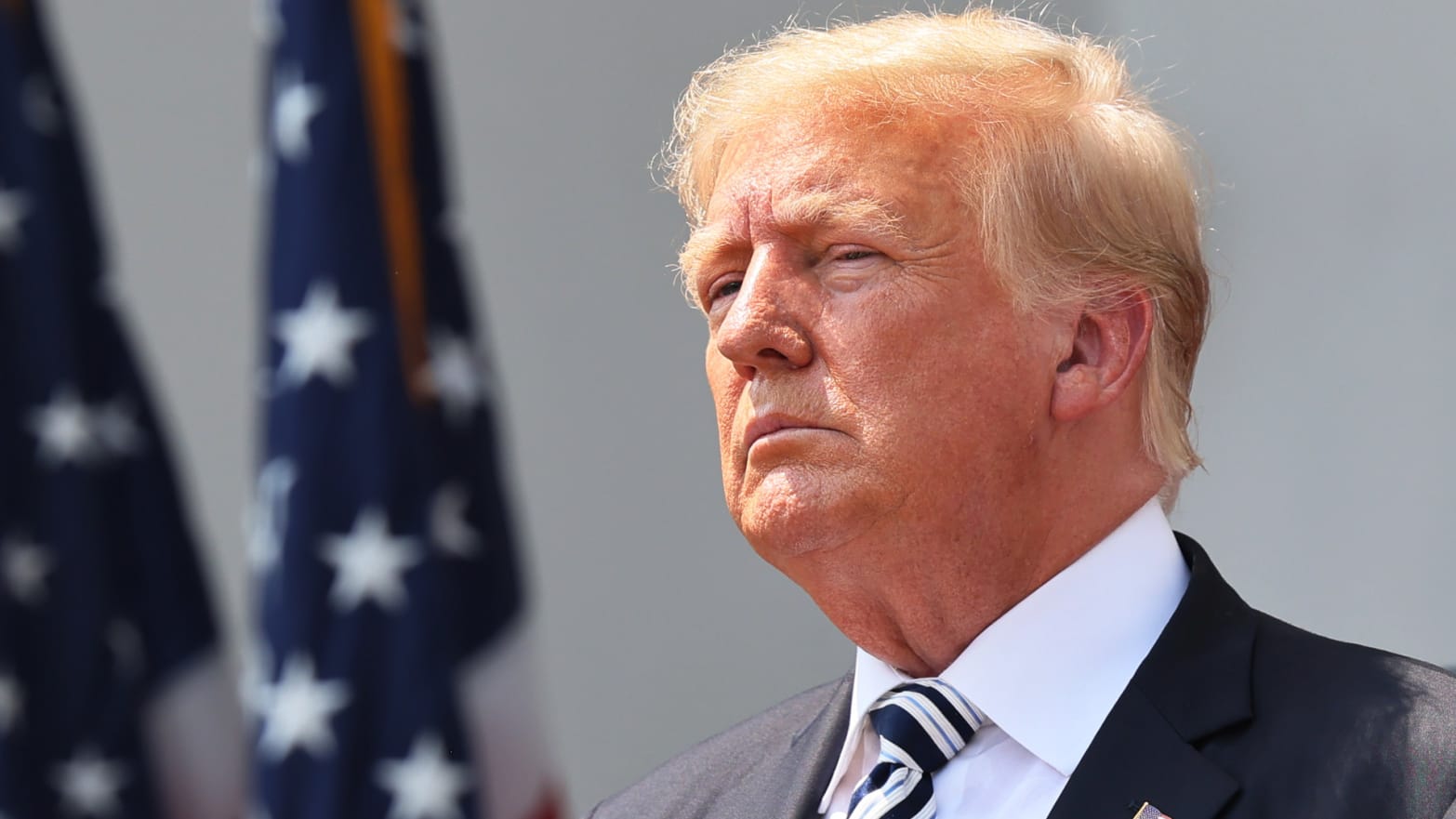The congressional committee investigating the Jan. 6 insurrection can indeed get Trump’s White House records despite the former president’s protests, a three-judge panel of appellate court judges ruled Thursday evening.
In their 68-page ruling, judges in the District of Columbia said that President Joe Biden’s decision to have the National Archives turn over the previous administration’s records supersedes former President Donald Trump’s attempt to keep them secret.
The committee is investigating what role, if any, the Trump administration played in fomenting the violent attack on the U.S. Capitol building while Congress was certifying his opponent’s electoral victory. Trump sued the committee to block release of potentially damning memos and internal communications, claiming a novel legal argument: that a former president retains residual “executive privilege” to keep documents out of the public’s hands.
When a federal judge ruled against him, noting that Trump is neither a king nor the current president, he appealed.
Judges were overwhelmingly convinced that a current president’s authority trumps a former president’s wishes.
“Former President Trump has provided no basis for this court to override President Biden’s judgment,” the judges wrote, noting that Trump’s “failure even to allege, let alone demonstrate, any particularized harm that would arise from disclosure.”
“Under any of the tests advocated by former President Trump, the profound interests in disclosure advanced by President Biden and the January 6th Committee far exceed his generalized concerns for Executive Branch confidentiality,” they wrote.
A statement by a spokeswoman for the former president made clear Trump plans to appeal the decision.
Jonathan David Shaub, a law professor at the University of Kentucky, noted his surprise that the appellate court so quickly put together such a long, sweeping decision. But the result was expected.
“I think they understood that Trump’s principal strategy with this suit is to delay, and they were not going to facilitate that tactic,” he told The Daily Beast.
The appellate judges also saw right past Trump’s claims of leftover executive privilege, calling him out on what they described as attempts to “delay the Committee’s work, and derail the negotiations and accommodations that the [White House and Congress] have made.” Simply put, they said, he didn’t meet the bar for getting judges to intervene.
“Former President Trump has failed,” the judges wrote.
In discussing the importance of letting Congress fully investigate the riot that threatened legislators’ lives in an attempt to keep Trump in power, judges also cited the eerie Benjamin Franklin quote that Americans have “[a] Republic—if [we] can keep it.”
They also described Trump’s lawsuit as an attempt “to create a separation of powers conflict,” by having judges weigh in on a former president’s ability to keep a current president from helping Congress. Instead, they opted to just say no.
In doing so, the appellate court seems to have sidestepped a growing concern for legal scholars: that Trump can use this court battle to hurt the investigation, even if he loses. Lawyers monitoring the case recently told The Daily Beast they’re worried that judges could be fooled into creating some kind of legal “test” to resolve this debate—inadvertently playing right into Trump’s hand by giving his tight-lipped former lieutenants a way to delay their own cases.
So far, only former White House advisor Steve Bannon has been criminally charged for contempt of Congress. But charges could soon be filed against two other resistant witnesses who have refused to answer the committee’s questions: Jeffrey Clark, a former top Justice Department official who tried to use the agency to perpetuate fake election fraud claims, and Mark Meadows, Trump’s former chief of staff.
However, national security lawyer Kel McClanahan told The Daily Beast in an email that the judges still gave Trump loyalists potential ammunition in their cases.
“It is especially frustrating that even though they stated near the beginning that they were not going to opine on whether a court can second-guess the incumbent President’s judgment in a case like this, they then stated near the end that an incumbent President did not have unfettered discretion; that statement is going to be cited in every case Trump or his allies file going forward,” he warned.
And the opening of Pandora’s Box might still happen. Immediately after the release of the appellate court’s decision, Trump’s spokeswoman made clear this is headed to the nation’s highest court.
“Regardless of today’s decision by [the] appeals court, this case was always destined for the Supreme Court. President Trump’s duty to defend the Constitution and the Office of the Presidency continues, and he will keep fighting for every American and every future Administration,” spokeswoman Liz Harrington wrote on Twitter.

